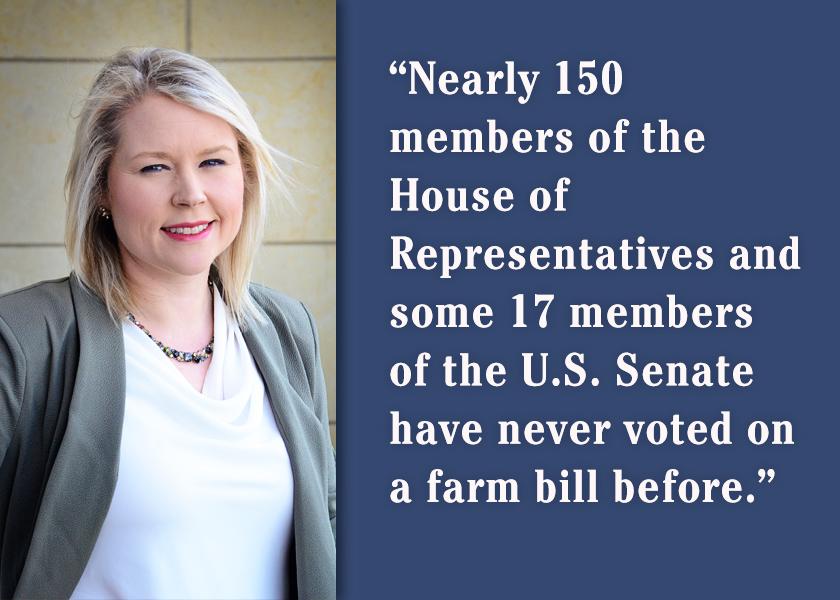4 Ways to Advocate for Ag in the New Farm Bill

The 2023 farm bill will have tremendous influence on your farm. It’s the chief policy instrument for commodity programs, trade, farm credit, conservation, agricultural research, rural development and, of course, food and nutrition programs. It will affect what U.S. agriculture does, and how we’ll feed the world, over the next five years.
Educate the New Players
That’s why U.S. farmers must get involved in the farm bill process, which is already underway. It will take some work to make your voices heard. Farmers make up only 1.3% of the U.S. population.
Nearly 150 members of the House of Representatives and some 17 members of the U.S. Senate have never voted on a farm bill before. Other elected officials and their legislative aides might not clearly understand farm bill programs.
But here’s the good news: They want to hear from you. They’re hungry for a direct connection with you and for the information only you can provide. They want to know what’s working or not working in your industry.
Here’s how you can take part:
- Invite local, state and federal officials to your farm or business. Help them connect the dots from the farm level to Washington, D.C., and beyond. Reach out to their offices and staff, especially those who aren’t familiar with ag, to let them know you’d love to have them out for a visit. Lead them on a tour of your facility so they can see and hear firsthand what you’re doing and why, and what industry changes you’d like to see.
- Get involved in a trade or member organization. A unified message from a large group amplifies a position, helping ensure critical programs continue to work and complex challenges find solutions.
- Join in a “fly in” to Washington, D.C. If there’s an opportunity for a group of farmers to travel together to the nation’s capital and meet with legislators or officials at USDA or other federal departments, take it. This is your chance to educate policymakers and their staff, who play a key role in crafting farm bill language.
- Make letters, emails and phone calls count. Courteous, well-informed outreach to legislators or key officials explains your position to those who shape farm policy. For example, Zach Ducheneaux, administrator for USDA’s Farm Service Agency, has told me he wants to hear from producers. Ducheneaux is an important link, providing direction on agricultural policy, administering loan programs and managing conservation, commodity, disaster and farm marketing programs.
Why You Must Act
As farmers, you already have so much on your plates. But if you don’t act, who will do it for you? Who’s telling agriculture’s story? Your advocacy matters more than ever.
More on farm bill 2023:
Research in Ag-Tech Top-Of-Mind in Farm Bill Hearing
Rep. G.T. Thompson Lists His 3 Farm Bill Objectives
Conservation, Loan Rates and Insurance: 3 Farm Bill Topics Gain Traction







